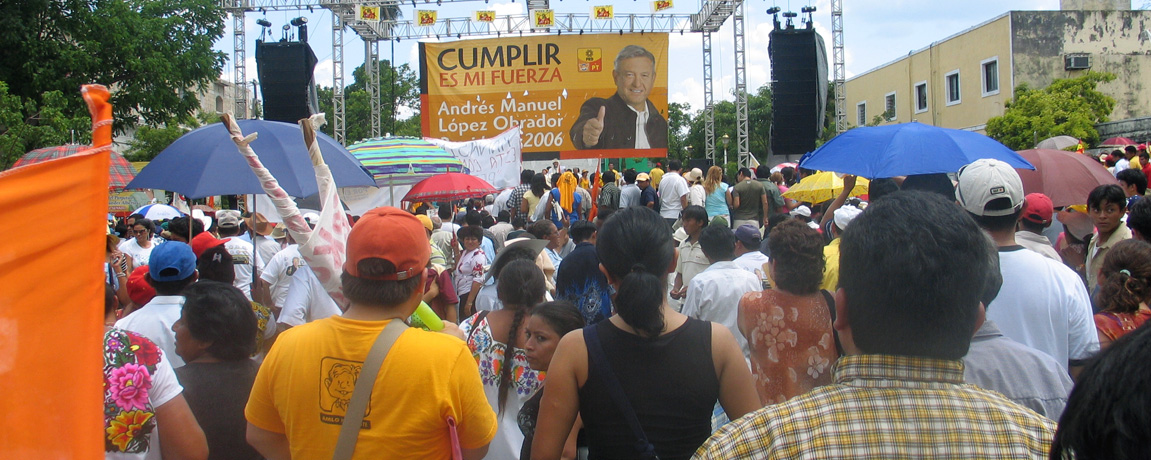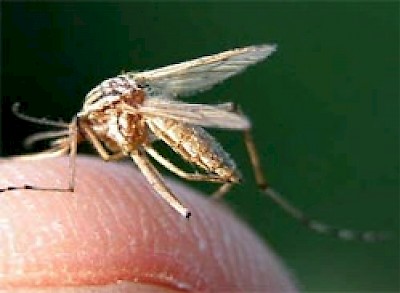Merida News: Colibrí, Cruises & Cenotes
Tourism Up 69.61% over last year
It is time for the cruise lines to begin finalizing their contracts with the Port of Progreso for ships coming to Yucatan next year. Already, tourism for 2007 is up 69.61% over last year and 2008 looks even brighter. As of now, confirmed cruise ships for the new year are already 46% above the number contracted in 2007. These new tourist dollars will go a long way toward helping with many of the social and cultural programs we have in Yucatan and, we hope, will also help to make vacationing in Yucatan a memory of a lifetime for our visitors.
Museum of the City: Call for Donations of Books, Pictures, etc.
Much of the history of both Yucatan and Merida is sitting in boxes and trunks, stored away in homes or in dusty storerooms of businesses. Many of us have seen old books and old pictures, music CDs, or even DVDs about either Yucatan or Merida, for sale for just a few pesos, in flea markets and out of the way “old stores.” As gringos, we may not have boxes of pictures of our Yucateco great-grandparents and their siblings – but we can keep an eye out for little bits of the history as we look for our own bargain purchases. And your donation really doesn't have to be “old”. All it has to do is have something to do with the history of life in either Yucatan or Merida (past or present). If you find something that you believe should be in the Museum of the City, especially old books or old pictures, or any kind of audiovisual artifact, please buy it and donate it to the museum – or even talk the seller into donating it. This is one thing we can do to help to preserve the history of this lovely place we have been so fortunate to find.
>
You can drop off donations at the Museum of the City, Tuesday through Saturday, 9:00 AM to 1:00 PM and 5:00 PM to 8:00 PM. And if you don't know about the City Museum, learn more and see photographs here.
Mosquitoes and Dengue Fever: No Deaths
Yucatan has a total of 106 municipalities (counties). The 13 municipalities that have reported cases of dengue fever include: Mérida, Progreso, Umán, Hunucmá, Tizimín, Valladolid, Chankom, Chemax, Ticul, Peto, Tekax, Maní and Oxkutzcab. Thirteen out of 106 doesn't seem bad until you realize that these 13 municipalities account for all of the 854 cases of dengue fever reported so far this year. This probably has something to do with the way it spreads. You can only get dengue fever by being bitten by a mosquito that JUST bit someone else with dengue.
Thankfully, (modern medicine being what it is) not a single dengue fever victim has died – not even any of the 188 who had the worst strain (hemmoragic). For those of you who are considering moving to, or vacationing in Yucatan, don't panic. We had 946 cases of dengue fever in 2002, and only 27 cases in 2003. This kind of thing seems to be weather-related, since 2002 was the year of Hurricane Isidore. When Isidoro was finished with Yucatan, 90% of the poultry industry and 80% of the pork industry in Yucatan was gone. Now, here we are again, on the heels of Hurricane Dean, with a spike in our dengue fever numbers. Just be careful and follow as many of these suggestions as you can.
To combat this mosquito phenomenon, the governor is authorizing money to purchase new mosquito trucks and carry out an advertising campaign telling people not to give mosquitoes a place to breed inside or out. In the meantime, these are our suggestions for what you can do now. Plant neem trees and lemon grass in your yard or in pots. If you use Skin-So-Soft, you must apply it every 15 to 20 minutes. Go to the Merida English Library. They have neem products for sale which are organic and can repel insects for up to 12 hours. Get rid of all trash and standing water in, on, or around your property. If anyone knows of anything else that can be done to protect us from these occasional plagues of mosquitoes, please let us know in the Comments section. Dengue fever is not something any of us wants to tangle with, though it probably won't be deadly. Getting rid of mosquitoes is the key to being rid of Dengue fever.
“Caverns” Appear in Inhabited Areas
We all know about the cenotes and caverns in Yucatan. The entire state is a limestone shelf, riddled with caves and underground rivers and lakes. These are marvelous places where the roofs sometimes break open and we are privileged to see and enjoy some of the most beautiful and mysterious places on our planet. But who is to say where the next one will open? We can have a reasonable expectation about the possible track for future cenotes because we have the technology to trace our underground rivers. However, what about the caverns that don't have water associated with them? Caverns have opened up next to a house in Motul, in Tekax and, more recently, in the middle of a street near the market in San Jose Tecoh.
Now we find out that a cavern was explored by archaeologists right next to the Old Post Office as it was being remodeled to become the Museum of the City in Merida. Evidently, there are many of these caverns in Merida. So far, no one has been hurt by the collapsing of cavern roofs, and no real property damage has been reported, but the subject certainly is an interesting one to file away for further contemplation.
Orange Prices Fall in Yucatan, Tabasco, and Veracruz
What we thought was going to turn into boom time for our orange growers has now collapsed. This is good news for Tabasco and Veracruz, since it means that all of their oranges were not destroyed by recent hurricanes. However, it is not good news for our orange growers. Prices have fallen to roughly half what was previously predicted because of competition between the orange growers of the three states. We wish our orange growers well in this competitive battle.
DUI: The Tizimin Surprise
Increasing prosperity has brought an increasing number of vehicles to our state and, unfortunately, an increasing number of drivers who choose to drink and drive. Tizimin is not a large city. It has a grand total of 4 jail cells, and 30 to 40 accidents a month now - 90% of which are caused by alcohol. Since jail space is at a premium, they have developed a graduated system of punishment that includes an initial fine of up to $1,000, plus $200 for the breathalyzer test. If the person pays the fine, they don't go to jail. If they can't pay it, there's always community service. If they don't pay the fine and don't do the community service, they need to turn themselves in and do the jail time (many do) – because, if they don't, the fine then starts tacking on 10 minimum wages, then 20 more minimum wages, and so on up the line (rather rapidly). It doesn't take long to run up a huge debt over an unpaid fine for a DUI. Please don't take Small Town, Yucatan, for granted when it comes to drinking and driving. Some readers have asked if Yucatan is “against” alcohol. Not at all. However, Yucatan is a state that has a long history of taking an unfavorable view of anyone who behaves badly in public, especially when alcohol is involved.
Free e-courses from CONAFOR
Did you know that there are now ten free forestry e-courses online from CONAFOR? For those of you who are “the real deal” foresters (and we know we have some among our readers), E-Bosque also from CONAFOR has some pretty handy information about all phases of the timber industry in Yucatan.
For more e-courses from CONAFOR click here.
The March of Dimes is Online in Spanish
We have all heard stories of the crisis in prenatal education (for mothers and fathers) in Yucatan. The March of Dimes now has their website translated into Spanish. If you know of anyone who is expecting a little one in Yucatan, it would be a good idea to either e-mail them the address of the March of Dimes, or print out the pages for them. Babies everywhere deserve the best chance in life that we all can provide them, and that is certainly true of our next generation of Yucatecos.
Who Is Francisco Abreu Rosado?
Last week, we asked if anyone could tell us who this man is and what he does for a living. So far, no one has guessed it, even though we really can guarantee that anyone who has ever spent any time in Merida will absolutely know this man on sight. He is 45 years of age, born in Merida, married, and the father of two daughters. He has been in the public eye since 1981 in both Yucatan and Quintana Roo. What does he do that causes him to be such a celebrity in both states, but especially in Yucatan? …and make no mistake about it – this man is a true “celebrity.”
The answer is: This man is also known as…… Leoncio, Mascot of the Leones de Yucatan Baseball Team. Leoncio is an amazing success, whether visiting sick children in hospitals, passing out Christmas presents to poor children, or attempting to “take off” and fly with his rocket-pack pouring smoke from under his Superman cape. Whatever Leoncio has planned for the day, you can be sure that a good time will be had by all. You can see Leoncio's photo album by clicking here. And find out more about the Leones from our very own baseball reporter (and author), Julia Kalmon in our Daily Life Topic.
Tropical and Subtropical Agro-ecosystems
For those of you who are interested in agriculture and ecosystems, we would like to introduce you to a peer reviewed, international multidisciplinary journal that is published by the Faculty of Veterinary Medicine & Animal Science right here at our own UADY. The research articles are online in English, so take a few minutes to look through them and see if you see anything interesting. There's something there for everybody, so don't think you have to be a farmer or rancher to take advantage of this site. Congratulations to UADY's Faculty of Veterinary Medicine & Animal Science for a job very well done!
>
Today In Your Community
Last school year, UADY began a new program called Today In Your Community, in which college students from UADY's schools of Medicine, Nutrition, Rehabilitation, Odontolgy, Chemistry, Veterinary Medicine and Zootecnia, Psychology, Law and Infirmary volunteered their time on Saturdays in the villages of the interior of the state. The program was extraordinarily successful and has just begun for this school year. Today In Your Community gives students, who are near the end of their schooling, practical experience they would never be able to find anywhere else. The people in the towns and villages they visit are the beneficiaries of a range of services they would never be able to otherwise afford. Our hats off to the Director of the Program, Jorge Carlos Guillermo Herrera, for an amazing feat of management!
Advanced Training Courses for Tourist Guides
All this week, in the Kabah Salon of Siglo XXI, there is an advanced training course being taught for tourist guides. It is too late to enroll in this class, but that does not mean that one cannot go by and get information about upcoming introductory and advanced tourist guide training programs. If you know of someone in Yucatan who would make a good tourist guide, pass this information along – or even shepherd them through the process. Tourism is important to the future of Yucatan and these courses will be invaluable to those who take them.
Looking for something fun to do? Remember the Rubik's Cube?












Comments
Lucy Alvarez 17 years ago
Me pueden dar informacion sobre buceo en los cenotes?
Reply
Khaki 18 years ago
Lemon grass is listed in the Purdue Guide to Medicinal and Aromatic Plants. That entire guide is online now and lemon grass can be found here.
Reply
Working Gringos 18 years ago
Claus, mosquitos are guided through life, not by sight or sound, but by chemical attractants and repellents, or what we would call smells. The reason they can find you in the dark is largely because of the smell of your breath (carbon dioxide, which we exhale, is one of their main attractants). There are several plants with odors that mosquitos do not like. Both lemon grass (a source of citronella) and neem are natural repellents.
Reply
Claus Mohr 18 years ago
Re: Mosquitos.
What does lemon grass or neem trees do? It's not explained in the article. Thank you, Claus Mohr.
Reply
(0 to 4 comments)